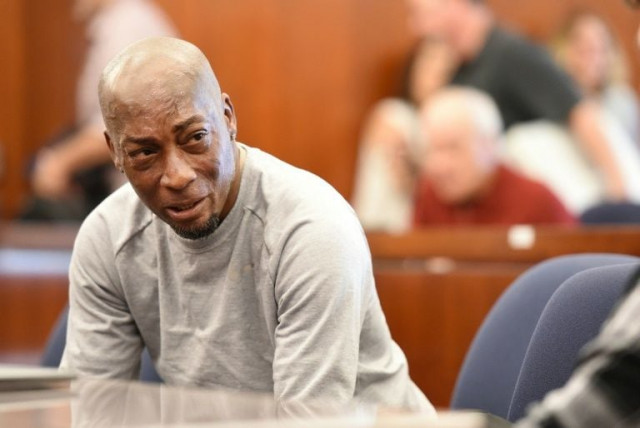US jury orders Monsanto pay $290mn to cancer patient in weed killer trial
Lawsuit is first to accuse product of causing cancer and observers say this case is to open claims against company

PHOTO AFP
Jurors unanimously found that Monsanto — which vowed to appeal — acted with "malice" and that its weed killers Roundup and the professional grade version RangerPro contributed "substantially" to Dewayne Johnson's terminal illness.
Following eight weeks of trial proceedings, the San Francisco jury ordered Monsanto to pay $250 million in punitive damages along with compensatory damages and other costs, bringing the total figure to nearly $290 million.
"The jury got it wrong," the company's vice president Scott Partridge told reporters outside the courthouse.
Johnson, a California groundskeeper diagnosed in 2014 with non-Hodgkin's lymphoma — cancer that affects white blood cells — says he repeatedly used a generic form of RangerPro while working at a school in Benicia, California.
How Monsanto's GM cotton sowed trouble in Africa
The lawsuit built on 2015 findings by the International Agency for Research on Cancer, part of the UN World Health Organization, which classified Roundup's main ingredient glyphosate as a probable carcinogen, causing the state of California to follow suit.
"We are sympathetic to Mr Johnson and his family," Monsanto said in a statement promising to appeal the ruling and "continue to vigorously defend this product, which has a 40-year history of safe use and continues to be a vital, effective and safe tool for farmers and others."
But Johnson's attorney Brent Wisner said the verdict "shows the evidence is overwhelming" that the product poses danger.
"When you are right, it is really easy to win," he said.
Wisner called the ruling the "tip of the spear" of litigation likely to come.
The lawsuit is the first to accuse the product of causing cancer but observers say a Monsanto defeat likely opens the door to hundreds of other claims against the company, which was recently acquired by Germany's Bayer.
Robert F. Kennedy Jr an environmental lawyer, son of the late US senator and a member of Johnson's legal team — sat in the courtroom behind the dying man, who bowed his head.
Gene-editing startups ignite the next 'Frankenfood' fight
"I think the verdict is going to trigger a cascade of new cases," said Kennedy, who championed the case publicly.
"The jury sent a message to the Monsanto boardroom that they have to change the way they do business."
Partridge said outside the courthouse that Monsanto had no intention of settling the slew of similar cases in the legal queue, saying if anything the verdict would prompt the company to work harder to demonstrate the weed killer is safe.
"It is the most widely used and most widely studied herbicide in the world," Partridge said. "The verdict today does not change the science."
Before jurors went to deliberate, Johnson's attorney Brent Wisner asked they deliver a "day of reckoning" for Monsanto.
"The science finally caught up, where they couldn't bury it anymore," Wisner told the jury in closing arguments.
Roundup is Monsanto's leading product and glyphosate is reportedly the world's most commonly used weed killer.
"The Johnson v Monsanto verdict is a win for all of humanity and all life on earth," said Zen Honeycutt, founding executive director of non-profit group Moms Across America.
"The majority of our illnesses and losses to soil quality, water, wildlife and marine life are due to toxic chemicals, particularly Monsanto’s most widely used glyphosate herbicides like Roundup and Ranger Pro.
Monsanto always denied any link to the disease and said studies concluded the product was safe.
But the controversy has already damaged the company's reputation.
Records unsealed earlier by a federal court lent credence to Johnson's claims — internal company emails with regulators suggested Monsanto had ghostwritten research later attributed to academics.
Founded in 1901 in St Louis, Missouri, Monsanto began producing agrochemicals in the 1940s. It was acquired by Bayer for more than $62 billion in June.
Monsanto was one of the companies that produced the defoliant "Agent Orange" — which has been linked to cancer and other diseases — for use by US forces in Vietnam.
The company denies responsibility for how the military used the product.
Monsanto launched Roundup in 1976 and soon thereafter began genetically modifying plants, making some resistant to Roundup.



















COMMENTS
Comments are moderated and generally will be posted if they are on-topic and not abusive.
For more information, please see our Comments FAQ